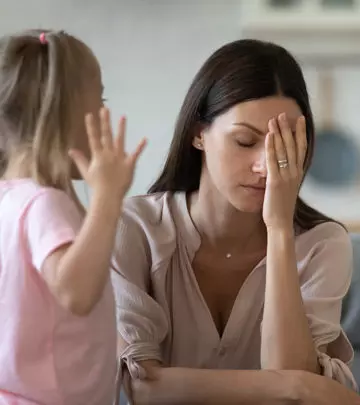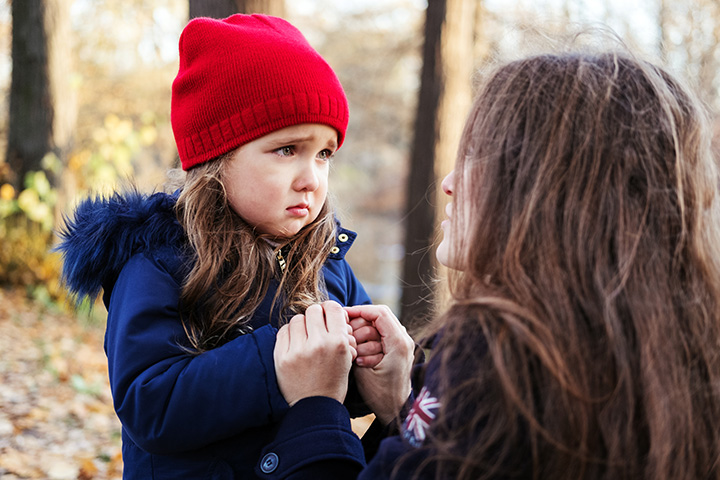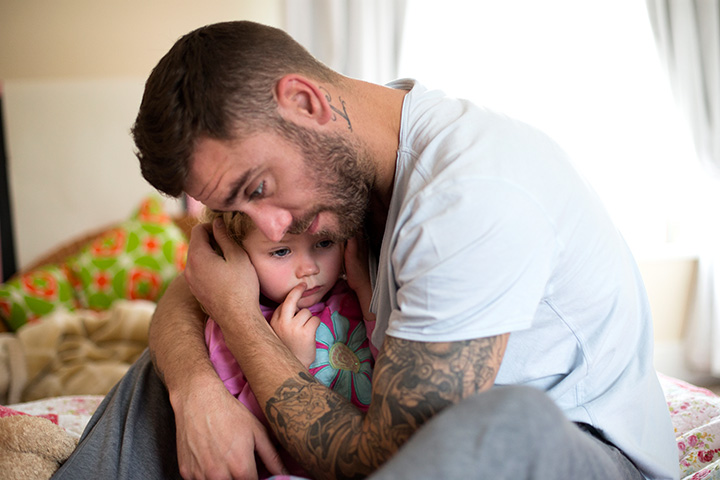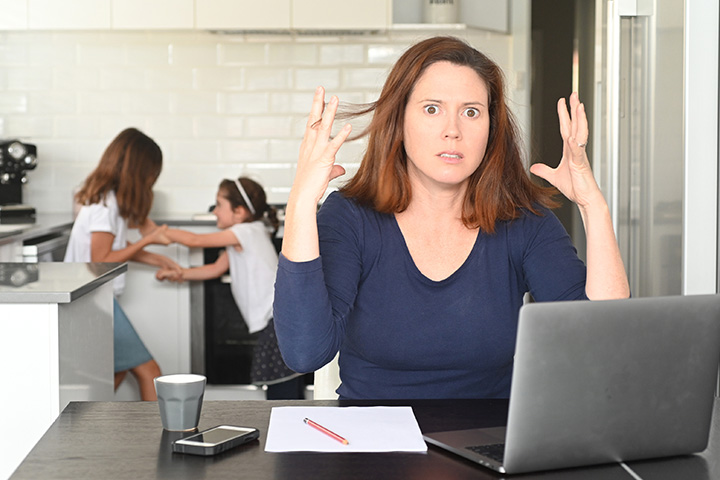
Image: iStock
Have you ever been in a situation where you haven’t had any sleep because your toddler has been waking you up every half an hour, refusing to sleep by themselves, throwing you off schedule and making you late for work? And now you have no time to eat, leaving you 5 seconds away from exploding and dissolving into a fit of tears? Well, we’re here to say that that is completely okay! Most parents try to stifle their frustration or negative emotions and just neglect their feelings when they are overwhelmed. We have all heard of instances where our own parents went through mentally and emotionally taxing times and kept it from us because they didn’t want their “shortcomings” affecting their children negatively. But is being human really a shortcoming? After all, wouldn’t your children, who are also prone to outbursts, benefit from learning that it’s something that their parents must contend with too?
Many parents want to be perceived as perfect by their kids. So they always try to say and do the right thing. And although there is certainly nothing wrong with doing your best, being obsessed with seeming faultless will only come back to haunt you. Everyone makes mistakes, has rough days and has the right to let all their pent up feelings out. It’s true that being emotionally unstable and prone to outbursts isn’t good for your kids, but it’s okay for them to see you lose it every once in a while. This will teach them how to respect your emotions and feelings and not take your patience for granted. Not to mention that learning how to comfort someone and empathize with them are important lessons for kids.
Here are 3 things to do when your kids see you have a mental breakdown:
1. Acknowledge
Image: IStock
Everyone, even parents, are prone to overreacting in the heat of anger. The best thing to do is first acknowledge that your negative behavior had an effect on your kids. Even if your little ones are not able to recognize this themselves. Tell them it’s okay if your behavior scared them. If your outburst came about due to something that they did, you can pinpoint that although what they’ve done isn’t correct, that you didn’t handle their indiscretion the right way. For example, you can convey that hitting their siblings is unacceptable without yelling at them. Show them there’s a more effective way to enforce limits in a calm, mature way that models how to handle a disagreement with another human.
2. Apologize
Image: IStock
It costs you nothing to say sorry. So do it frequently and sincerely. Reassure your kids that your outburst had nothing or very little to do with them. Many parents hesitate to apologize to their children because they are scared that it will make them look weak or throw off the power dynamic. This however simply isn’t true! Your children need to learn that saying sorry makes them a better person. So practice what you preach. It’s fine to give your children the reason behind your actions as long as you are not making excuses for your poor behavior.
3. Act
Image: IStock
The most important thing to do is to make a plan of action to prevent this from happening again. You have to actively work towards overcoming certain triggers or find ways to evade them. For example, if the kids have been driving you up the wall all day and you can’t seem to take it anymore, ask your partner to step in. It’s okay to disconnect or take some time away from the kids to clear your head and regain your composure. As long as they are in a safe environment and with someone you can trust. Make sure that your children understand that you intend to learn from your mistakes and will not repeat them. Don’t ignore it or brush off their concerns and go about business as usual. You have an obligation to take accountability for your actions and find ways to ensure that they will not happen going forward.
Parents never want their children to find out that they’re just regular human beings too. But once you do, you open up a whole new world for you and your kids. You can be honest with them and communicate with them on a deeper level. Because they see you as people who are also trying to do better, your kids will respect you more. Having an open line of communication and accountability will help both parties learn how to cope with mental distress and crises in healthy ways. What more can you ask for! Have you ever had a mental breakdown in front of your kids? Let us know in the comments section!















